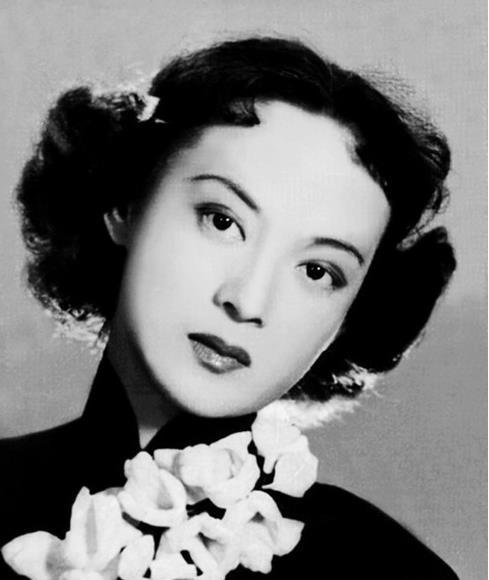As the saying goes: behind a successful man there is a great woman, this sentence is particularly appropriate for Cao Kun. Cao Kun's ability to go from a small businessman to president during the Republic of China is inseparable from a woman named Chen Hanrui.

Chen Hanrui, born in 1892, a native of Dagu, Tianjin, is a fellow villager of Cao Kun. The Chen family is a famous wealthy businessman in Tianjin, whose ancestors began to start a business hard from setting up a stall, and Chen Hanrui's father's generation has become a famous business magnate in Tianjin.
The good family situation has enabled Chen Hanrui to receive a good education from a young age, and she is very thoughtful in dealing with people and things. Coupled with her appearance, she was born intelligent, and was a "goddess" level figure at that time, and many rich children have been sending flowers and gifts to pursue her.
During the warlord melee in the Tianjin area during the Republic of China, although the Chen family was a large family, they could not avoid worrying, let alone keeping the huge family property? The Chen family urgently needed to find someone who could escort the entire family, and it happened that Cao Kun's younger brother Cao Jun came to propose to his elder brother Cao Kun, and the Chen family immediately agreed.
Cao Kun was the division commander in Tianjin at the time, because he was often deceived when he was young, many people thought he was stupid, and because he was the third oldest, everyone called him "Cao San Fool". His wife Gao Shi has been dead for a few years, the original Zheng clan does not understand communication, attended the banquet made a lot of jokes, Cao Kun has always wanted to find a wife who can help him, so the Cao and Chen families hit it off.
The parents took it upon themselves to settle the affair, which made Chen Hanrui very angry and determined not to marry a fool who was 30 years older than himself. This made the people of the Chen family anxious, and they all tried to persuade each other, and finally Chen Hanrui decided to talk to this fool who wanted to become her husband.
After Cao Kun heard about it, he admired such a bold woman. Chen Hanrui put forward three conditions: Ming Media was marrying, he wanted to spoil himself alone, and he could not interfere in his own life, and Cao Kun agreed to all of them. In 1912, the 20-year-old Chen Hanrui married the 50-year-old Cao Kun and became Cao Kun's third wife.
The new marriage brought good luck to Cao Kun, and soon he occupied Baoding and concurrently served as the governor of the province, which can be described as a spring breeze and a double harvest for his career and family.
In order to better help her husband, Chen Hanrui carefully studied the rules of high society and internal affairs, and soon had close contacts with the wives of local governors. She also often held various parties and banquets, she was humorous, helped her husband make a lot of powerful people, and saved a lot of connections for Cao Kun to become president.
In October 1923, Cao Kun was elected as the fifth president of the Republic of China, who knows, Cao Kun, who became president, not only had a lot of scandals, but also married a concubine, and Chen Hanrui, who was angry, left directly with his children.
Soon, Cao Kun, who had not yet secured the presidency, was ousted from power, and because the family's adopted son had controlled the wealth for many years and completely disregarded Cao Kun's life and death, Cao Kun had to take his concubines to defect to Chen Hanrui.
At this time, Chen Hanrui was seriously ill, and her husband's treachery and the past when the elders in the family forced herself to marry Cao San's fool left a great trauma in her heart, and she had not interacted with her mother's family for a long time. After Cao Kun went to the wilderness, Chen Hanrui died alone in the rental house.
Chen Hanrui sacrificed herself to complete her husband, but she ended up with a most bleak ending. Although she is a new woman in the Republic of China, she cannot get rid of the old feudal ideas, and finally becomes a victim of the interests of the entire family, which has to be said to be a sadness.